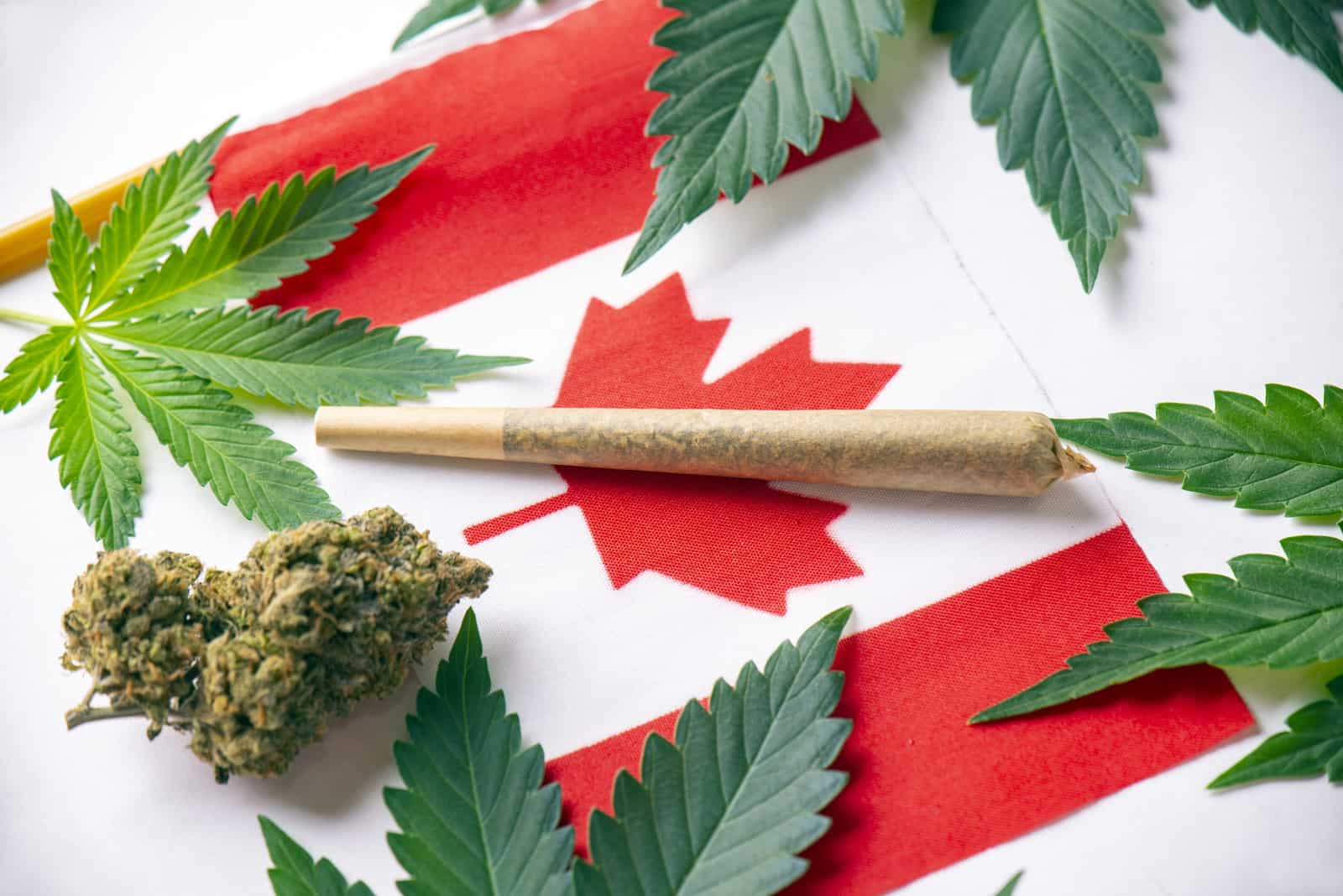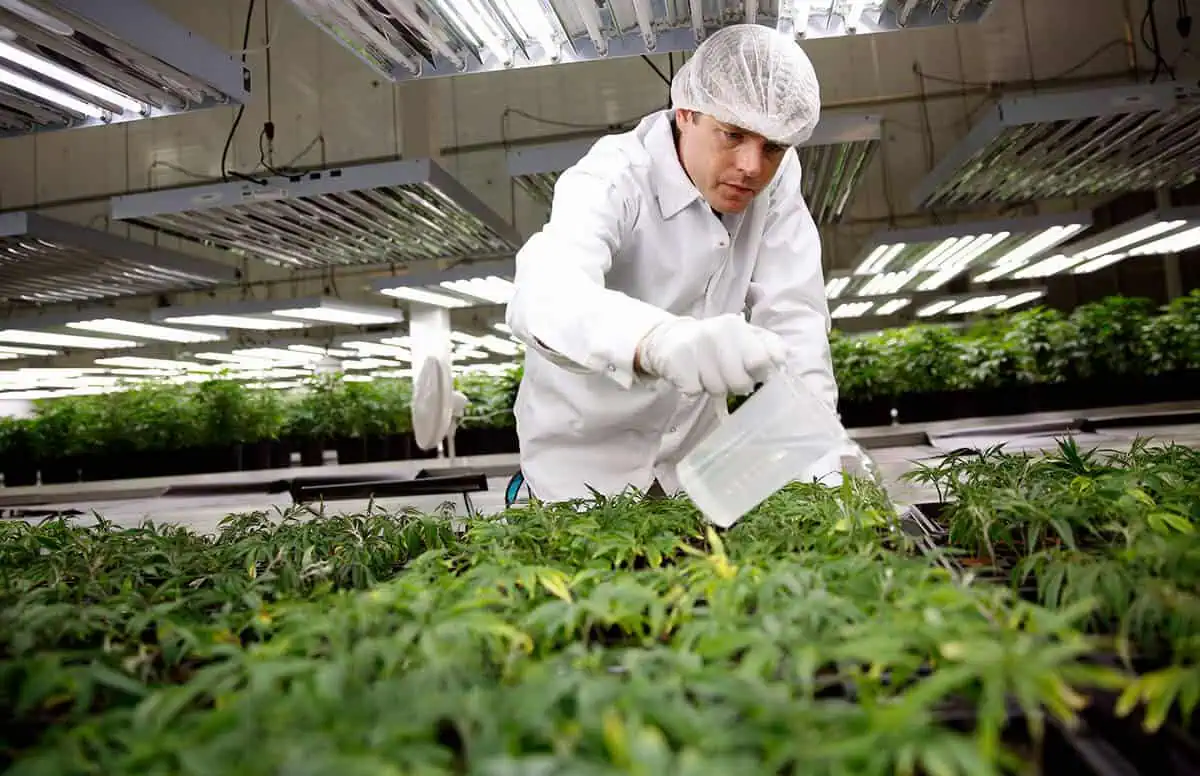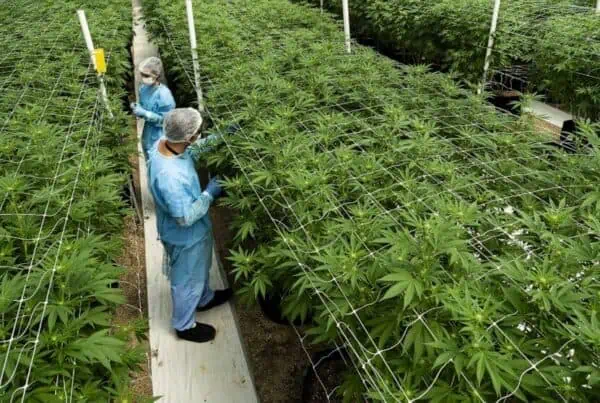TABLE OF CONTENTS
Check out our guide for the hottest Canada marijuana jobs and cannabis careers. If you are interested in joining thousands of others working full-time in the Great White North’s industry, our guide covers Canada's marijuana laws, the state of cannabis employment in Canada, the different jobs available, and how to become employed.
What’s the Law in Canada?
Canada stands apart from the rest of the world, including the United States, as a powerhouse in the cannabis industry. As a progressive nation, Canada became the second country in the world (after Uruguay) to legalize weed on a national level in 2018 after passing Bill C-45. Canada allowed its recreational market to begin in October of the same year.
Canada's medical cannabis program has been around since 2001.
In the Great White North, you are able to possess, carry, and share up to 30 grams of cannabis. Age requirements in Canada depend on the province. In most provinces, however, the legal age to purchase and consume is 19. In Alberta, the legal age is 18 and in Quebec it is 21.
Cannabis laws vary by province including how much you can purchase. In almost every province (except Nunavut) marijuana is sold in a government-run retail shop, a privately owned dispensary, or a mix of both. Some provinces allow you to order online and get it delivered.
Cannabis Employment Opportunities in Canada
As a result of Canada's leading position in the global marketplace, Canada's employment opportunity in this industry has exploded. In 2017, Statistics Canada showed that almost 2,400 people were employed by 55 licensed cannabis producers.
As of May 2020, Canada's legal marijuana industry has brought in $3.96 billion to the country's gross domestic product since the start of legalization in October 2018. The country has also seen employment numbers rise up to four times as much from 2018 to 2019. Canada’s cannabis workforce went from 2,630 jobs to 9,200 jobs according to Statistics Canada.
Dispensary Jobs in Canada
Cannabis dispensary jobs are one of the most popular employment opportunities in the industry for entry-level positions. One of the most recognized positions is the budtender. Retail stores employ dispensary managers, assistant managers, lead budtenders, and a staff of budtenders, also known as sales associates.
Much like a bartender, a budtender serves a customer their product of choice and may even recommend an alternative. In order to be a budtender, you must have extensive knowledge of cannabis including the different strains, products, delivery methods, and more nuances of the consumption process to enlighten customers.
As a budtender, you'll be on your feet most of the day helping customers find a product and completing the transaction using a POS system. Budtenders must balance a busy dispensary’s long line while also answering any question a customer may have. They must be friendly, outgoing, and must remain calm with overwhelmed or rude customers.
Budtenders can quickly move their way up to manage a team of budtenders and become a lead sales associate. If you are loving the retail scene, you can continue to accrue experience, and hopefully, one day be promoted to assistant manager or a manager position.
Cultivation Jobs in Canada
Canada's growing industry requires a lot of help in the cultivation sector. Cannabis cultivation is the starting point for many cannabis products. Entry-level work involves a lot of physical labor moving soil, walking around facilities, checking the health of plants, and cleaning up to maintain an organized work environment.
As an entry-level trimmer or cultivation assistant, you are in charge of following the master growers’ orders and performing various activities throughout the growth cycle including relocating plans, watering plants, preparing plants for hydroponic environments, replacing light bulbs, and other important and routine tasks.
With enough experience and expertise, a cultivation assistant or trimmer can work their way up to higher-paying positions such as a master or lead grower. As a master grower, you must be specialized in the cannabis cultivation and breeding process to ensure a successful harvest and many new strains for the cannabis producer.
Manufacturing Jobs in Canada
Ever since cannabis 2.0 hit the scene in Canada, Canada's edible, beverage, and concentrate market has kicked off. As a result, many edible producers and extraction companies are hiring people to help out in the kitchen and lab, respectively. Edible producers make a range of cannabis-infused products including chocolates and other sweet treats.
Cannabis extraction companies are responsible for distilling the cannabinoids and terpenes from the plant biomass and creating a range of concentrates for consumption or use in edibles and topicals alike.
Master extractors and extraction techniques are responsible for running the closed-loop equipment and work with solvents that can become dangerous is handled improperly.
In most commercial cannabis companies, quality is crucial to meet the province’s regulations. Quality assurance managers in the processing and manufacturing space are in high demand. QA managers are responsible for ensuring batches of cannabis products are safe and ready for sale to the customer.
Marijuana Ancillary Jobs in Canada
You don't have to work directly with the plant to work alongside cannabis industry professionals. A number of ancillary positions help support and maintain this fast-growing industry. If you're an applicant with experience helping businesses stay afloat, you can find work in marijuana.
Cannabis ancillary positions can be found in cannabis law, web development, digital marketing, accounting, real estate, IT, and so many more pertinent positions.
Where to Find Cannabis Jobs in Canada
If you live in Canada, there are many job opportunities in the industry depending on where you live. Large cities will have more cannabis job opportunities than rural locations, generally. Currently, Ontario and Alberta have the most cannabis jobs available, specifically Toronto and Edmonton, respectively. Other hot spots include:
- Vancouver, B.C.
- Smith Falls, ON
- Calgary, AB
- Burnaby, BC
- John’s, NL
- Ottawa, ON
- Kelowna, BC
- Pitt Meadows, BC
- Leamington, ON
- Delta, BC
- Kamloops, BC
- Mirabel, QC
- Richmond, BC
Indeed Canada compiled data on it's most clicked on jobs from January 2019 to January 2020, and here's what they found.
Brendon Bernard, an Indeed Canada economist said, “A greater share of job-seeker interest in Ontario is directed toward production-related roles, while retail jobs capture a larger share of cannabis-related clicks in Alberta and B.C.”
“This likely reflects a larger footprint among major licensed producers like Canopy Growth in Ontario than elsewhere. However, the pattern could change somewhat as brick-and-mortar retailers expand operations in Ontario,” he continued.
Based on the data, here are the top marijuana jobs, ranked by clicks per million:
- Sales Associate (84)
- Marijuana Budtender (43)
- Grower (41)
- Technician (36)
- Quality Assurance Analyst (28)
- Educator (26)
- Sales Representative (26)
- Trimmer (25)
- Store Manager (24)
- Customer Service Representative (22)
How to Get a Marijuana Job in Canada
Obtaining a cannabis job in Canada is relatively easy if you know what you're doing. Begin by researching your province and local laws to determine if you are able to work in the industry and what you can expect from working there if you've never held a cannabis position.
Start by preparing your resume and cover letter for the position you're applying for. An updated resume with the right transferable skills and a cover letter showing your personality and passion for the plant can make or break your application.
“
There are over 300,000 jobs in the cannabis industry. CTU trained me for one of them!

Makes $24.50 @ THC +
Canadians can search online for cannabis jobs on online job boards such as indeed.ca (Canada’s version) and other industry-specific job boards. Applicants may also find jobs in industry publications and attend networking at trade events to find work.
For those missing the right experience in terms of job or industry knowledge, you can sign up for an online training class to catch up on the latest the industry has to offer. CTU offers a comprehensive curriculum so you can decide where you fit into the industry and be prepared to excel in it.
Enroll in Canada Marijuana College
Canada’s cannabis industry is ripe with employment opportunities for the right individual. From entry-level positions to get your foot in the door to advanced careers requiring a college degree, there's a little something for everyone in the industry.
One of the best ways to stand out from the crowd is to enroll in an online cannabis training institution. Learn the tricks of the trade to have a better chance of getting hired by cannabis recruiters by completing budtender training, cultivation training, and more training modules in Canada.

Fred Hernandez
Fred Hernandez is a highly accomplished and versatile writer, boasting an extensive background in the cannabis industry. With an in-depth understanding of various sectors including cultivators, processors, retailers, and brands, Fred's expertise spans across the entire cannabis landscape. As a prominent contributor to CTU, he consistently delivers insightful articles exploring the latest developments, news, and regulations shaping the cannabis industry. Whether it's delving into the intricacies of cannabis products, cannabis strain reviews, or providing comprehensive analyses of cannabis laws, or sharing expert insights on cannabis cultivation techniques, Fred's wealth of knowledge positions him as an invaluable writer and educator for all cannabis-related subjects.












 Jeff was involved in an accident where he endured a traumatic brain injury. He had a week-long stay in ICU where brain surgeons
Jeff was involved in an accident where he endured a traumatic brain injury. He had a week-long stay in ICU where brain surgeons  100% risk free money back guarantee within 48 hours after purchase if student has not completed any of the courses or exams.
100% risk free money back guarantee within 48 hours after purchase if student has not completed any of the courses or exams.